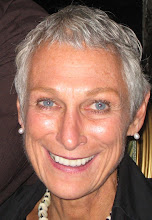The greatest adventure of my life has not been coming to Senegal. This has been a great adventure but not the GREATEST adventure. No, the greatest adventure has happened in the nondescript locations and it has happened many, many times. I’m always surprised when I realize, not because I’m unconscious at the time but because I am totally engaged and engrossed…I’m always surprised when I realize that it’s happened again.
It happened yesterday. And as always, when I realized it, I was as freshly amazed as when it happened the first time.
Yesterday, I rose to the sound of Ramadan prayers at 5:30, checked email and read the New York Times, drank a couple of cups of brewed Italian coffee, hopped in the SUV at 8 and met up with Malle Fonana, who is a staff consultant at Focus Africa, the business consulting group that is providing pro bono support to the Hospital of Hope. Malle has undertaken the perverse role of untangling the governmental red tape affairs that periodically strangles the project. Malle is slowly but surely finding the right people to move the project forward.
We drove to Bargny to meet with the Secretary General of the Office of the Mayor. We had a 90-minute drive, we arrived early and we waited an hour past the appointed meeting. We met a technical advisor for land issues and the head of the local rural medical council. We looked at the land. Both were helpful about describing the next steps that we need to undertake in the process of project approval. Then, we got in the SUV and began the drive back to Dakar, which was a much longer returning because it was mid-day, traffic was heavy and the road is under construction. The case for why Bargny needs a hospital was really evident.
But that’s not what this blog is about. This blog is about Malle and the conversation we shared in our very long day of driving.
First, I asked him questions about family, education, past career. Then I got bold and asked if he was married or intending to marry, as it was apparent that family is greatly valued in the Senegalese culture. He laughed and offered a very sensitive response that focused on the work of relationship, which he said he doesn’t have the energy for because work itself is so important to him. We talked about his career, which has been at large firms and now at Focus Africa, which though small is landing huge and important projects for companies and governmental agencies all over the continent. It was evident that he loves his work. I was honest and open with him when asked a question, telling stories from my own life and work life. We talked about the importance of mentors and advisors, people who will tell us the truth and help us through the rough spots…with love, with honesty, with commitment.
We were having an excellent conversation. I was very happy and contented to be there. In part, I was surprised by what was happening. In part, I felt like I was having a long cold drink of water after a day of Ramadan fasting. My desire and need for intimacy was being met. Then, in one of those moments of blinding connection, the intensity of the conversation increased and deepened. I asked him if his family ever talks with him about his life and work. The answer was a very simple “no”. And the follow-up question: “How do you feel about that?”
At that point, Malle began talking on another level…very personally…about feeling different from the rest of his family, feeling alone and isolated from them, feeling that there’s very little connection between them, that he feels his has the power to change his life and they don’t. He also spoke about the need for cultural and social change in Africa, about how important leadership is to the change process, about the fact that a leader has an obligation to lead people to believe that they can change, about a book on leadership that he wants to write.
It was a moment that I might have expected to share with my English-speaking friends in Amsterdam or Barcelona or New York. But all this is happening with a 35-year-old African man in Bargny, Senegal, in the Secretary General’s outer office, in the company of two assistants and three other waiting gentlemen. And then, we were in the meeting, and the business of the day was underway. But a shift had occurred: Malle and I talked most of the way back to Dakar. I shared with him some of the frustration and loneliness I’ve experienced in Dakar. He talked about his hopes and dreams. It was unguarded.
Malle is, in my opinion, Africa’s hope. His emotional intelligence is matched by his mental intelligence. His commitment to Africa’s humanity is deeply moving. I have six more weeks to know Malle. I’m grateful for that time.

